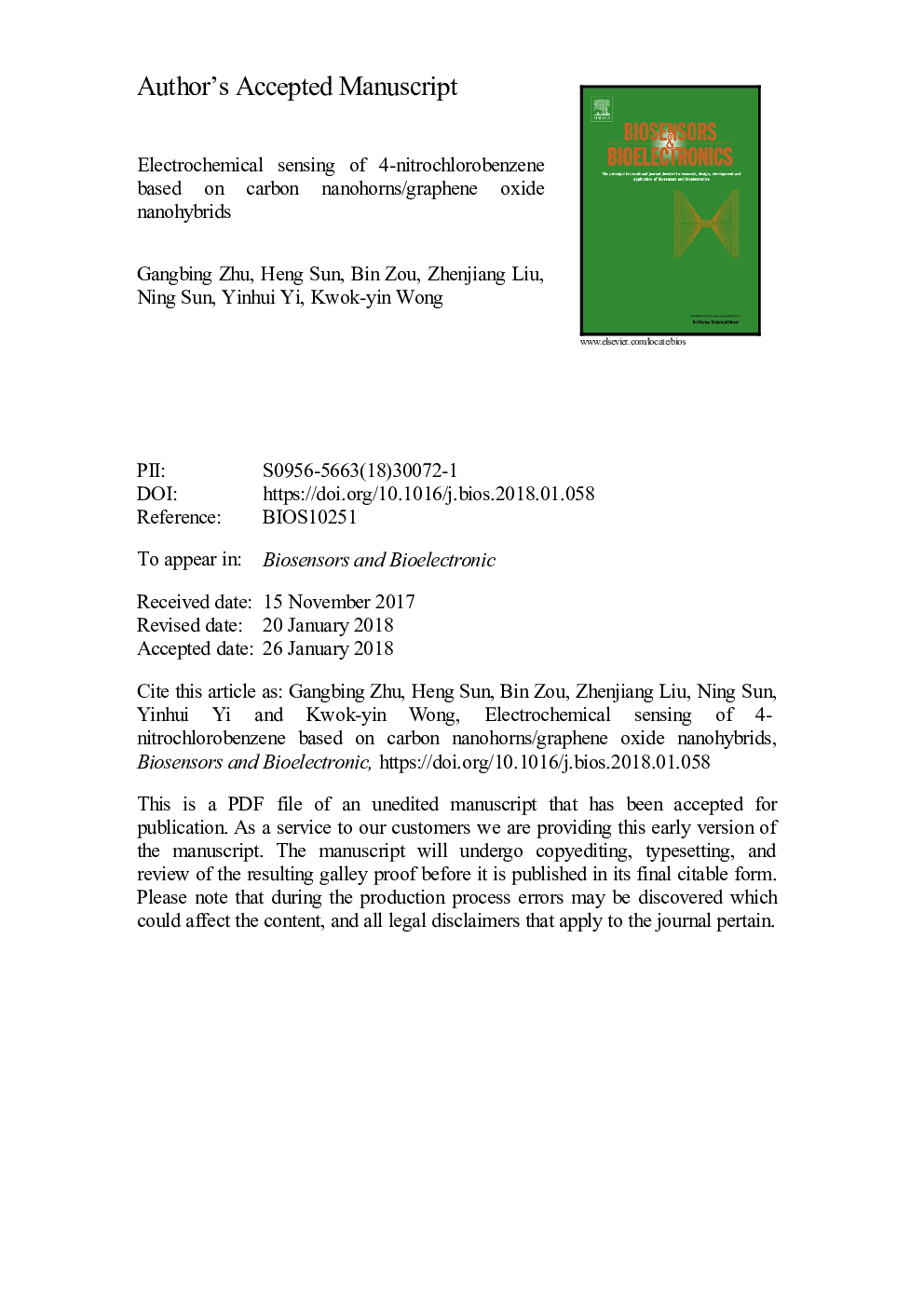| Article ID | Journal | Published Year | Pages | File Type |
|---|---|---|---|---|
| 7229680 | Biosensors and Bioelectronics | 2018 | 19 Pages |
Abstract
Owing to the harmful nature of 4-nitrochlorobenzene (4-NCB, one toxic organic pollutant) and the low cost, high sensitivity and ease of operation of electrochemical method, it is highly desirable to develop effect electrochemical sensor for the detection of 4-NCB. Herein, by partially unzipping carbon nanohorns (CNHs) via a simple wet-chemistry method, CNHs and graphene oxide (GO) (CNHs/GO) nanohybrids were produced for sensing 4-NCB with synergistic properties. While the retained CNHs offer a path for rapid electron transport, the GO sheets formed by partially unzipping CNHs provide abundant active sites, further increase in surface area as well as improved dispersibility of the CNHs/GO. Our results show that the CNHs/GO modified electrode has excellent sensitivity to 4-NCB with a wide linear response range and a detection limit as low as 10â¯nM.
Related Topics
Physical Sciences and Engineering
Chemistry
Analytical Chemistry
Authors
Gangbing Zhu, Heng Sun, Bin Zou, Zhenjiang Liu, Ning Sun, Yinhui Yi, Kwok-yin Wong,
